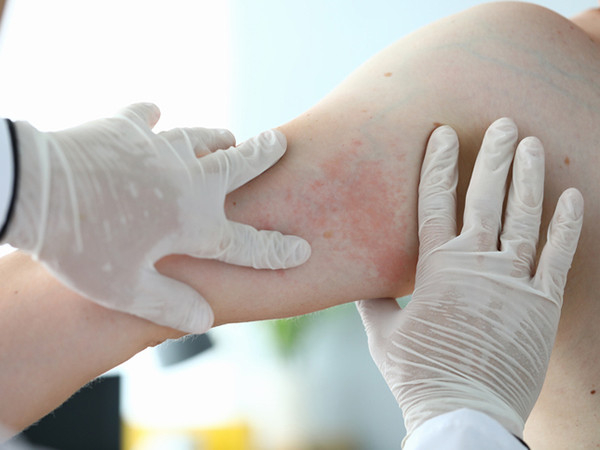
Weight loss once was considered a simple calculation: eat less and move more to create a calorie deficit. Now, basic differences between people — in genetics, health conditions, body type, and more — are also thought to play a role in how challenging it is to lose weight. Yet research suggests that some factors may help set the stage for success.
Sleep more to eat less? New research boosts this premise, suggesting that adults who are better rested consume significantly fewer calories than those who are chronically sleep-deprived.
This short-term study of 80 overweight people drives home just how integral slumber — or lack of it — is to our propensity to put on excess pounds, says Dr. Beth Frates, director of lifestyle medicine and wellness in the department of surgery at Massachusetts General Hospital.
“Working to find ways to clean up sleep hygiene may help people to extend sleep time to the recommended seven to nine hours per night,” Dr. Frates says. “This could, in turn, lead to consuming fewer calories and even weight loss in people who are in the overweight category by BMI.”
Sleep shortfall linked to chronic diseases
The new study, published in JAMA Internal Medicine, reinforces earlier findings indicating that people who sleep less consume more calories — and even crave higher-calorie foods — compared with those who sleep for longer periods.
About one-third of Americans don’t sleep the recommended seven to nine hours each night, Dr. Frates notes, and this shortfall is linked to many chronic diseases, including high blood pressure, heart disease, diabetes, and obesity. Sleep, she says, is one of the six pillars of lifestyle medicine — a list that also includes exercise, nutritious eating, stress reduction, social connection, and avoiding risky substances.
“Most people focus on exercise and diet when it comes to weight management and a healthy heart, but few focus on sleep,” she says.
Tracking sleep cycles, calories, and weight
The study participants were adults ages 21 to 40 with a BMI between 25.0 and 29.9, which is considered overweight. All of them routinely slept less than 6.5 hours each night. For the first two weeks, all maintained normal sleep patterns.
For the second two weeks, participants were randomly split into two equal groups. With the aim of lengthening sleep times to 8.5 hours, one group received individualized counseling pointing out ways to alter sleep-busting factors relating to bed partner, children, and pets.
“The advice wasn’t generalized,” Dr. Frates notes. “It was specific to the person, and then there was a follow-up visit with more counseling.” The second group of participants continued their typical sleep habits.
All were told to keep up daily routines without changing diet or exercise habits. Each wore a wrist device that tracked their sleep cycles, and they weighed themselves each morning. Sophisticated lab tests teased out the difference between the number of calories each participant consumed and expended each day.
Balancing appetite-regulating hormones
Researchers found participants who received sleep hygiene counseling slept for more than an hour longer each night than those continuing their prior sleep habits. Extended-sleep participants also consumed an average of 270 fewer calories each day and lost about a pound compared to control group participants, who gained just under a pound on average.
The findings are exciting, because they reveal the power of education and counseling on behavior change — in this case sleep, Dr. Frates says. Significant extra slumber time can help people feel like they’re thriving rather than just surviving, she adds.
But why might extra sleep matter? Sleep duration has long been linked to the body’s production of appetite-regulating hormones. Insufficient sleep is associated with higher levels of the hormone ghrelin, which increases appetite, and lower levels of the hormone leptin, which leads to feeling less full. This sets people up to gain weight. By contrast, sleeping more could alter these hormones and bring them back to balance.
“People might also feel more alert, energized, and happier with more sleep,” Dr. Frates adds. “This could lead to more activity, even if it isn’t exercise. It may lead to less sitting and more socializing.”
It’s worth noting that the study didn’t reveal whether the extended sleep pattern was maintained after the two-week intervention period, or what types of food participants ate and when.
The study had other limitations, too. “Were the people in the sleep extension intervention making healthier choices?” Dr. Frates asks. “Calories are important, but what makes up those calories is equally important. Measuring hunger levels, cravings, and stress levels would also provide important information.”
Takeaway tactics to improve your sleep
A few key tactics from the study could help you improve how long you sleep — and possibly help you take in fewer calories:
- Keep a sleep log
- Monitor sleep times with wrist actigraphy devices such as smartwatches
- Evaluate bedtime routines to tweak factors influencing sleep duration
- Limit use of electronic devices at least an hour before bed.
About the Author

Maureen Salamon, Executive Editor, Harvard Women’s Health Watch
Maureen Salamon is executive editor of Harvard Women’s Health Watch. She began her career as a newspaper reporter and later covered health and medicine for a wide variety of websites, magazines, and hospitals. Her work has appeared in The New York Times, The Atlantic, CNN.com, WebMD, Medscape and HealthDay, among other major outlets. Maureen earned a BA in print journalism from Penn State University. View all posts by Maureen Salamon



